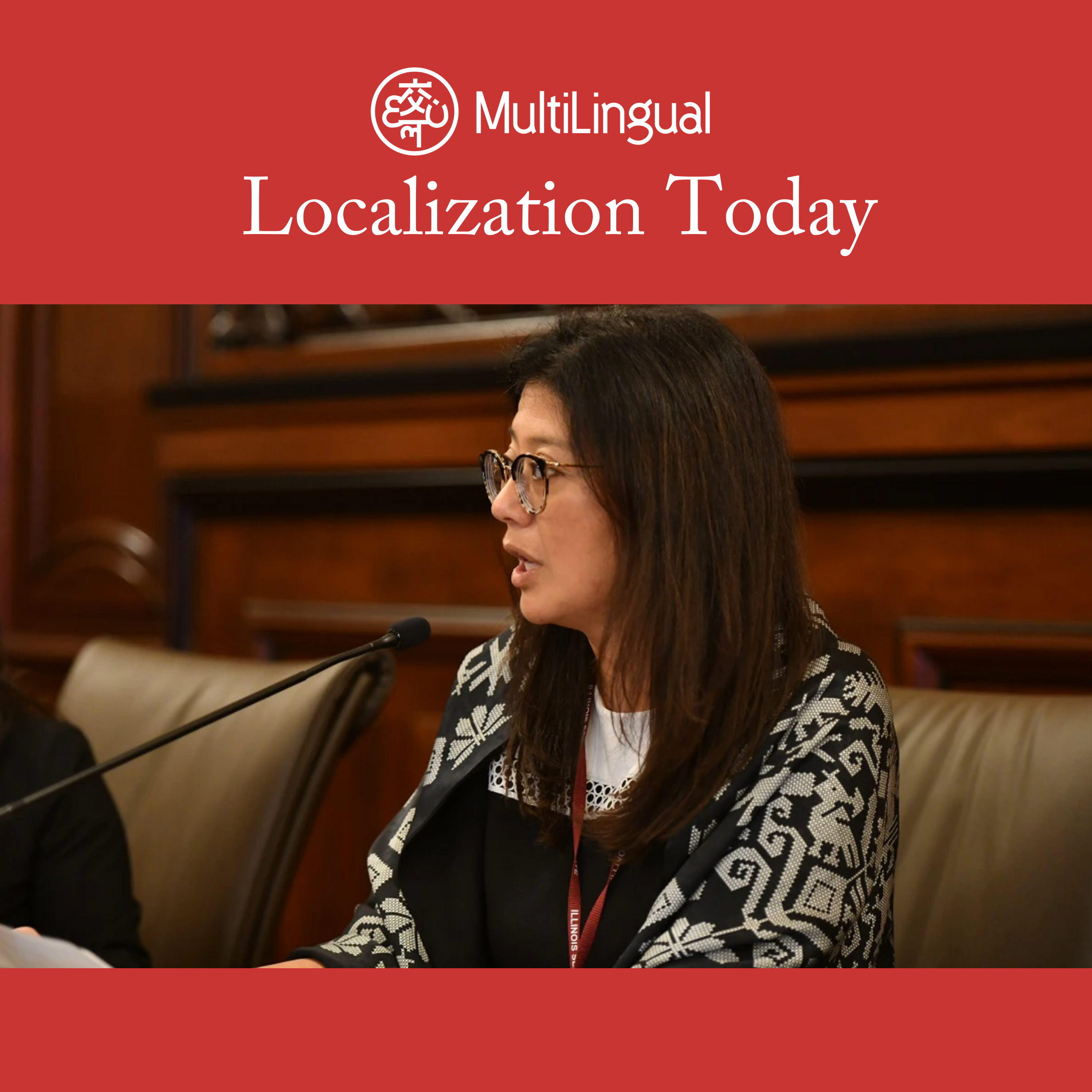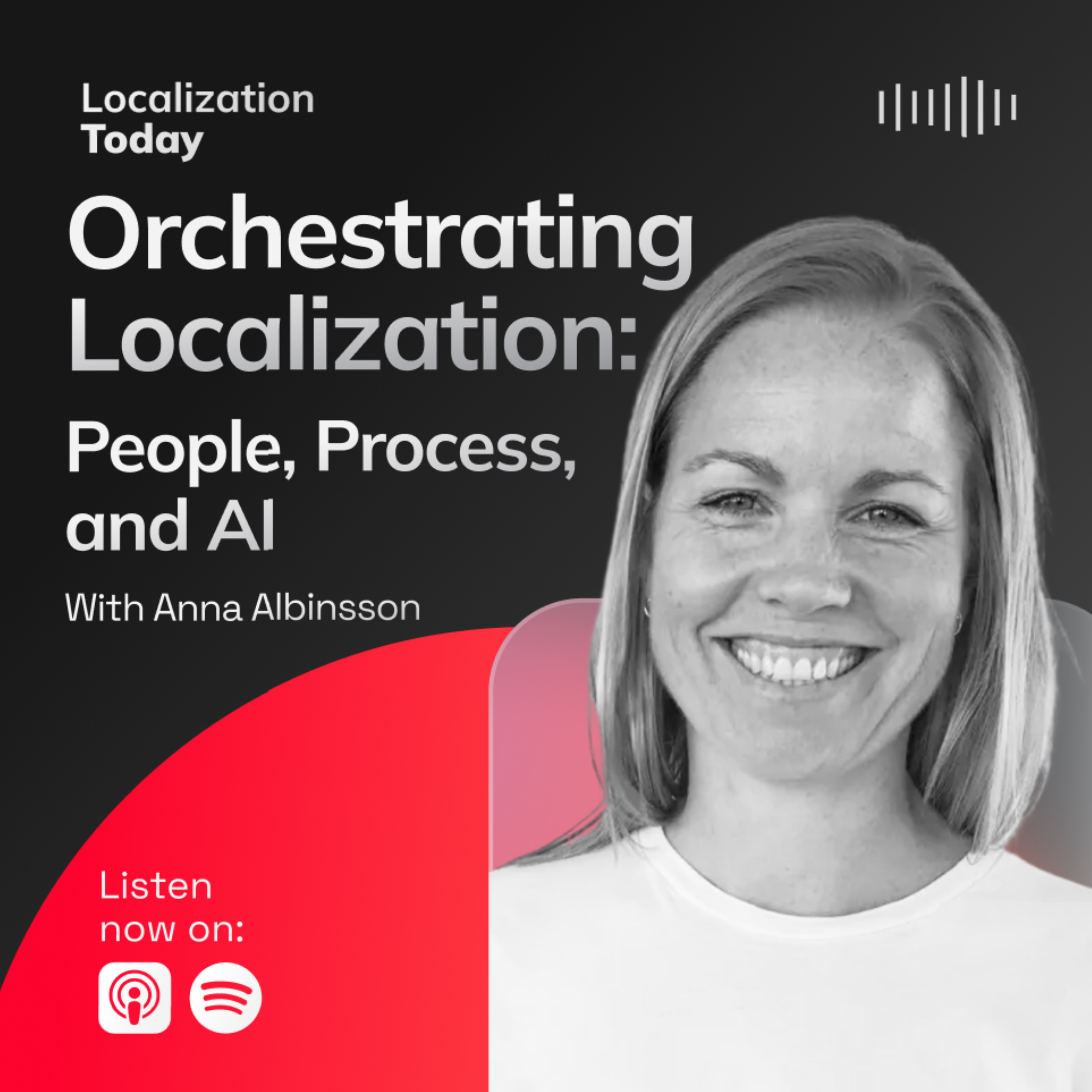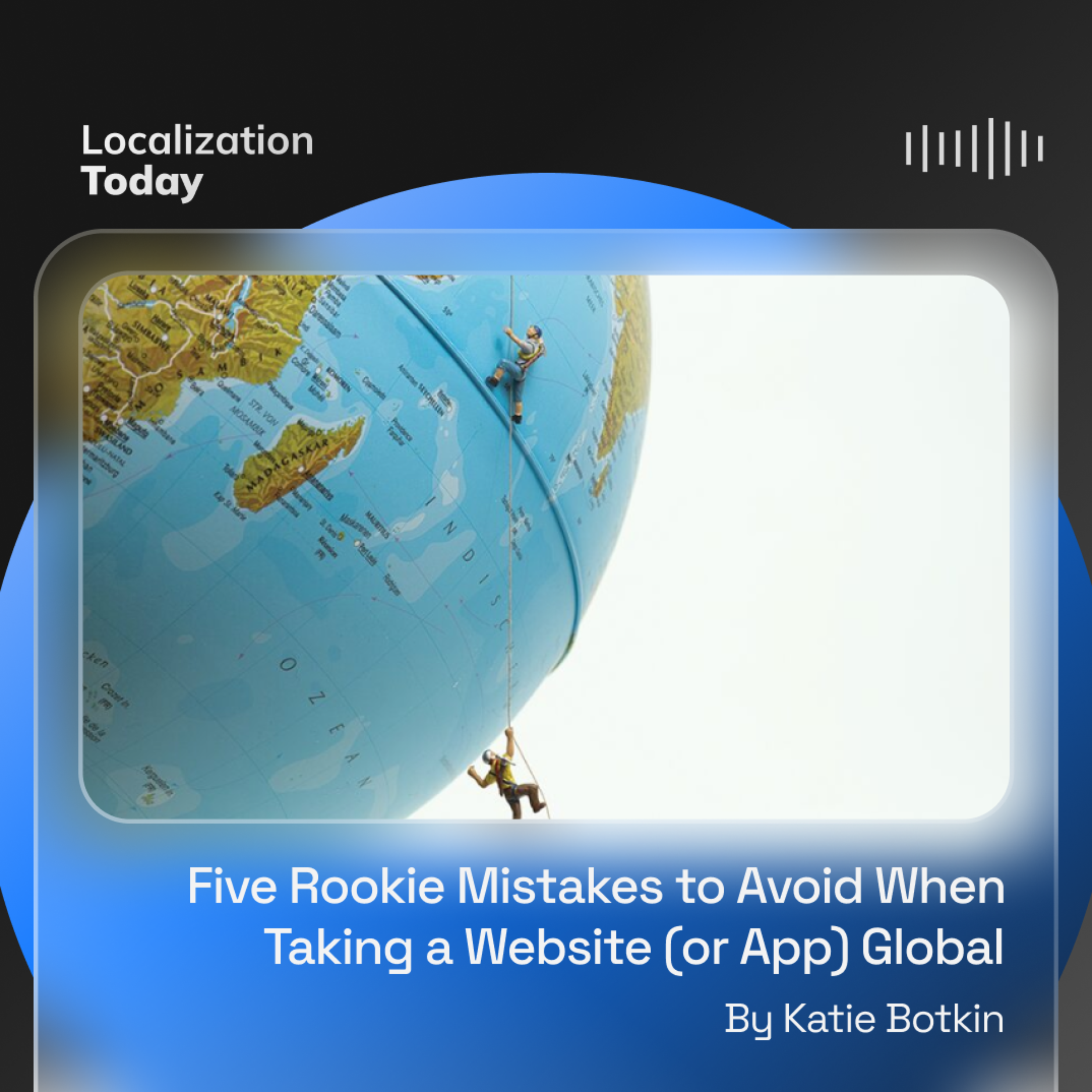Episode Transcript
[00:00:04] Speaker A: The following is our conversation with Bugais Jahargir. He's the Chief Revenue Officer at memoq. What was really interesting about this conversation is that I did not suspect some companies are not interested in integrating artificial intelligence in their processing. Ugais talks to us about those that are not yet looking into artificial intelligence and those that are. The contrast is amazing. I hope you enjoyed this conversation.
[00:00:44] Speaker B: So I'm Mugais Jahangir. I'm the Chief revenue officer at Memoq based in Toronto, Canada. So 2024 has been pretty huge for us in terms of all the new ideas that have come to fruition for us. We announced AGT last year at Locke World, in fact, and it's been a year since we made that announcement and the feedback has been incredible. We've had customers that in the beginning wanted to just test it to see how it would work. And now we have customers that are claiming this is better than everything that they have tried so far. So we wanted to take that to the next level. And we have received feedback from customers on why they're on the fence about AI and how they want the data to be treated when they're working with memoq.
And what is the data that should be going through MemoQ and what is the data that can leave MemoQ? MT is one of the things that you know when you are using memoq, the data would leave your memoq environment and go to a third party. With the acquisition of Global Ease now, everything remains within the MMMQ environment. So we are pretty serious about data security and privacy. And I think that has been some of the things that clients have been talking about a lot.
And with AI, since a lot of companies are talking about it, we have had requests from companies on two fronts. One, they want to know what's memoq's AI strategy? And we are very happy to answer those questions because we do are pretty. We are pretty serious about AI and how we want to work with our clients. But the other side, which is not spoken about a lot, is customers who come to us and ask us how can we stay away from AI? Can you make sure that the memoq environment that we are working with is not impacted by anything around AI? And we have to do that in writing for some customers. So we've always said that memoq is very flexible, it's very customizable for what the customers need. So we can create a memoq server for our customers where we can ensure that nothing goes through AI. But when we talk about memoq with our customers, we also say that we want to be part of your journey in localization. So we want to guide you and we want to understand why is it that you don't want anything to do with AI. So having those conversations is really important for us to understand what are the important things for the customers. And as I've said before, data privacy security is one of the key elements. When we took that feedback in. So we have AGT, we worked with Microsoft OpenAI for AGT, we spoke with Microsoft Team and said, hey, listen, we want to make sure that the customer's data remains secure, remains private. The customer's data should be the customer's data. And we don't want Microsoft to use that data to train any models or anything else. So we received an exception from Microsoft, which now is in our terms and conditions that any data that process that is processed through AGT will not be used to train any models. But we still wanted to go further, right? So we have customers that are still on the fence about AI and they want us to make sure that, yes, we want to work with memoq, but we want to make sure you don't put anything, you don't push AI on us, right?
So when we sell memoq, we don't sell a software. We believe we, we want to work with you to grow your localization teams. We want to help you scale, we want to understand what your requirements are and we want to be as specific as we can. So right now we are having conversations with these customers and we are trying to understand why is it that you don't want memoq to have anything with AI. And we are introducing them to how memoq with AI can help them. And if they still don't want anything to do with AI, and while they are experiencing and learning about AI, we can keep it completely free from anything related to AI. So that's the benefit of having this flexible environment in memoq where you could choose whether or not you want AI in your environment. And it's, it's incredible because we don't tend, we don't tend to hear these conversations in general. Right. We always talk about everybody is into AI, but that's not the reality. The reality is far bigger than that, especially in certain sectors where, you know, whether it's the government, whether it's the medical industry, there are a lot of companies that are still unsure.
And that's where we want to be part of those conversations. We want to have these people involved with our team. We want to have roundtables with our team to understand what we can do to help you adapt AI.
Getting the exception from Microsoft was a big step for us. And we had a lot of customers who after that decided that, okay, now we're okay to test it. Right. And when they tested, they like it. They said, okay, AI is actually very helpful.
It falls within their priorities of how data should be handled. Thus, I think for us, it was a significant move to understand what the customers are looking for when it comes to AI. And we've introduced things that is a step towards that. And I think the coming years, the coming months are going to be even more exciting.
I don't know if you heard about Balash taking the role of chief evangelist. We are precisely focusing on what the customers are talking about, what they are looking for, what does the market need and how memoq we can cater to that. We want to be in the industry in a position where we guide people on how they should be handling AI and not enforce things on people if they don't need it. Right. So that's really what we are trying to do. And I'm here at Lockpool and I've had conversations with people asking about Global Ease, how it can help them. But every time it's a question about what does MemoQ want to do with Global Ease? Right. That's still the standard question. And I think when people try it, when people understand that it's about data, it's about how you can best leverage the resources that are is already with you, how we can best leverage that, whether it's with AI, without AI, we want to have those conversations with people. And that's really what our priority is right now. Yeah. So the biggest concern is how the data is handled. Right. So if we are putting any data through an AI platform, these companies are working with a lot of vendors. And if the vendors are suddenly changing the way the data is handled, companies sort of get nervous and they just want to put a block to it before while they figure out what's going on. So the first step for them is to make sure that, okay, while we understand what's going on, can you please ensure that there's nothing around AI that will be involved with our company? So first we do that. That's the first step for us to give them the assurance that, okay, your memory setup will be free from anything related to AI. And then we have those conversations. And that's when we uncovered all these details that, okay, this is about data security, is about privacy. They have a lot of sensitive data that they work with and they're not sure how involving AI will treat that data and that's what's important for them. And when you give them that assurance that, okay, your data is still your data, it's not going to be used by MemoQ or Microsoft or any third party for any purposes whatsoever, then they have the assurance, okay, now we can do whatever we want with it. And then when you have that flexibility, I don't think any company would be hesitating in trying out how AI can help them.
Absolutely. I think there are two sides to it as well though. They are at a disadvantage. But if you are working with very sensitive data, I think it also gives assurance to their customers that they, they can trust this company to make sure that our data with them is secure so they see that this company is doing the due diligence. So we understand that side of the story as well. Yes, there is a disadvantage, but because of this so called disadvantage, we were able to dig into it and we could understand why if we didn't have those conversations, we probably wouldn't have gone into those conversations with Microsoft. But because they resisted adapting AI, we were able to go deeper into it and understand why they're resisting. Right. So they, even though it is a disadvantage in the short term, but I think in the long run for their customers, it builds a lot of trust. So I would say if you are on the fence, you can take your time, there's no question about it.
But at the end of the day, if you're not adopting AI, I think you are, you'll be left behind. So eventually you'll have to understand or you should have a very strong reason to not adapt AI in your, in your company's environment at all. So what that reason would be, that's the conversation I want to have. You know, that's what I want to talk to companies, tell us why and let's understand and let's find out if there is a way we can, we can address those concerns.
One of the things that I've again learned from experience of talking to customers is from the management. When there is, there is a push towards creativity and giving the freedom to teams to go and explore, find out how we can scale up faster and find out how we can make our processes more efficient. When you give your team that freedom, they will be out there exploring and finding out how AI can help us. Right. I would encourage companies to do that. Give your teams the freedom to explore and find out how can AI help us in general.
Don't put a straight out block on it, you know, just explore and ask us questions. You know, if you are on the fence about anything and you're. You have concerns about adapting AI, whatever you're looking at, ask them the questions. Like, like companies have asked us questions. You know, we were able to resolve those concerns. So it's, it's okay to have that resistance in the beginning. I think it's, it's fair to, it's. I can understand why, but at the same time, we shouldn't completely close the doors entirely to the massive opportunities that come with AI. That's really what I think my final thoughts would be.
You can be careful when adapting AI, but I would say don't be paranoid. Be careful, but don't be paranoid. And I think we are all here trying to help companies adapt AI at MemoQ.
And I would encourage people to talk to us. Just ask us questions. Anything that's on your mind, any concerns, any questions. Be more creative in with AI you can, you can keep your imaginations as wild as you can and come up, come, come up to us with ideas and let's see how we can make them a reality.
[00:11:05] Speaker A: And this was our conversation with Mugais Jahargir, Chief Revenue Officer at memoq. If you enjoyed this conversation, please share it with everyone in your network. My name is Eddie Arrieta, CEO at Multilingual Magazine. Until our next time, Goodbye.


